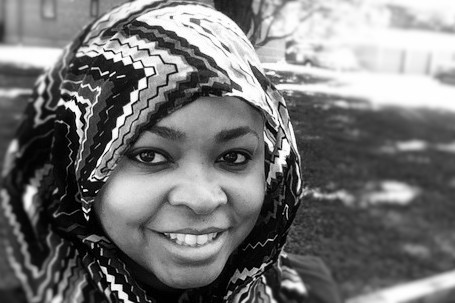As Ramadan sets in, Muslims in Murfreesboro, Tennessee, are fighting for the right to celebrate as faithful Muslims. Yesterday, The Becket Fund for Religious Liberty filed a request for a temporary restraining order on behalf of the Islamic Center of Murfreesboro. Becket’s brief requested that the Islamic Center be permitted to use its newly built mosque in time for Ramadan, the holiest month of the Islamic calendar, during which Muslims fast each day from dawn till sunset.
Within a few hours of filing the brief, the judge granted the restraining order — good news for Murfreesboro Muslims, who commence their Ramadan observations on Thursday.
The Islamic Center of Murfreesboro has been part of the Murfreesboro community for over 30 years. In 2010, the Islamic Center began building a new mosque to accommodate its growing congregation. Its efforts were met with a hostile reception by a small group of local residents, who filed suit in Rutherford County Chancery Court seeking a temporary restraining order to halt construction of the new mosque. Among other things, the suit made the baseless claim that the county’s zoning law denied plaintiffs due process by failing “to provide a hearing to examine the multiple uses of the ICM site and the risk of actions promoting Jihad and terrorism.”
But in a novel twist, the plaintiffs also made the claim that Islam, the world’s second largest religion, is in fact, not a religion, and thus undeserving of First Amendment religious freedom protections.
The argument went like this: because Islam is not a religion but a political ideology and the mosque would be used for political not religious assembly, the mosque is not subject to the same zoning treatment as churches.
The move against the mosque is part of the larger anti-sharia movement in the state and across the nation, with a prominent leader of the movement, Frank Gaffney, introduced as an “Islam expert” at trial. The anti-sharia and anti-mosque protests culminated in numerous acts of anti-Muslim animus during the course of the mosque construction. For example, a large construction vehicle at the construction site was intentionally set on fire. There was even a bomb threat, which resulted in a federal indictment.
So the Muslim community found itself, on the eve of its most holy religious period, a collection of so-called political jihadis facing a violent and politically-oriented attack.
As a Muslim and Catholic, we stand together in denouncing the hostility towards this Muslim community and the effort to turn our court system into an accomplice. And while there is well-grounded concern in this nation about national security threats posed by terrorism, decades-old faithful communities seeking to celebrate their religious holidays in peace are the wrong target.
But most importantly, seeking to undermine the religious rights of a group through dirty hat tricks is something that should be cause for concern for all people of faith. Because when any group, be it private citizens or our own government, succeeds in redrawing the lines as to what constitutes a religion or religious activity for political motives, religious freedom in this nation regresses for all.
This was at root in the landmark Supreme Court case of Hosanna-Tabor Evangelical Lutheran Church and School v. EEOC in which a small Lutheran Church in Michigan clung to its right to hire and fire employees based on core religious tenets, despite the governments’ argument that a religious group should be treated no differently in employment matters than any other group. This would be a dramatic change to the posture of church state relations, essentially placing the government in the role of appointing and terminating ministers, and the argument was swiftly labeled as “amazing” and “shocking” by both wings of the highest Court.
It is also the issue at stake in the national struggle over the HHS mandate which in less than two weeks will begin requiring certain religious employers to violate their consciences and provide services in their healthcare plans which they find gravely immoral, simply because they are, by the government’s standards, not religious enough.
The Murfreesboro mosque case exemplifies how the winds can blow when one group who cares little for the religious freedom of another takes action.
As a Muslim and a Catholic, we stood together behind Hosanna-Tabor and the essential role the ministerial exception plays in our legal system. We stood together against the HHS mandate, despite the narrative that opposition to the mandate constituted a “war on women.” And we stand together now. Because no religion is an island. When the rights of one faith are abridged, the rights of all faiths are threatened. All faiths have the right to worship God in freedom and in peace, and with dignity.
Asma Uddin is an attorney with The Becket Fund and is the editor-in-chief of AltMuslimah.com.
Ashley McGuire is an attorney with The Becket Fund and editor-in-chief of AltCatholicah.com.
This article originally was published in The Huffington Post.




